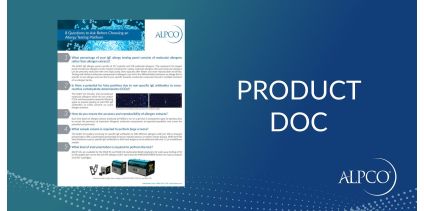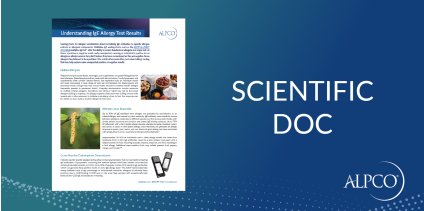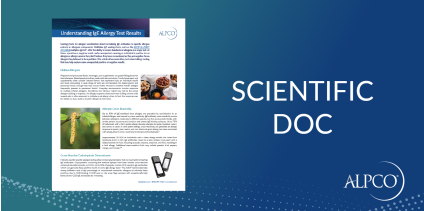Serum Amyloid A ELISA (SAA ELISA)
$869.00
Catalog
41-SAAHU-E01
The Serum Amyloid A ELISA (SAA ELISA) can be used for the measurement of SAA-1, the major isoform of SAA in plasma. Research Use Only. Not for Use in Diagnostic Procedures.
Species
Human
Regulatory Status
Research Use Only. Not for Use in Diagnostic Procedures.
Product Distribution
Available Worldwide
Range
0.157-10 ng/mL
Sensitivity
0.157 ng/mL
Sizes
96 Wells
Sample Types
Plasma, Serum
Inc Time Hour
1
Inc Time Overnight
No
Inc Time See Protocol
No
Sample Size
10
Detection
Colorimetric
SAA has a number of immunomodulatory roles, it can induce chemotaxis and adhesion molecule expression, has cytokine-like properties and can promote the upregulation of metalloproteinases. It enhances the binding of high-density lipoprotein to macrophages and thus assists in the delivery of lipids to sites of injury for use in tissue repair. It is thus thought to be an integral part of the disease processes. In addition, SAA is involved in cholesterol transport and metabolism SAA is an acute phase reactant and has been found to be elevated in many inflammatory states. The best known indicator of inflammation is C-reactive protein (CRP). However, SAA rises earlier and more sharply than CRP. In contrast to CRP, SAA presents the same trend in viral as well as bacterial infections. SAA increases dramatically during acute inflammation and may reach levels 1000-fold higher than normal. Furthermore, SAA is an early indicator for transplant rejection, a possible marker for tumor activity and clinically useful in bacterial and viral infection. Elevated levels of SAA over time predispose to secondary amyloidosis, extracellular accumulation of amyloid fibrils, derived from a circulating precursor, in various tissues and organs. The most common form of amyloidosis occurs secondary to chronic inflammatory disease, particularly rheumatoid arthritis.







